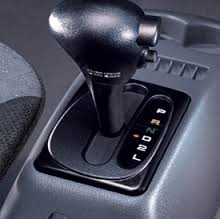automatic
英 [ˌɔː.təˈmæt.ɪk]
美 [ˌɑː.t̬əˈmæt̬.ɪk]
- adj. 自动的;无意识的;必然的
- n. 自动机械;自动手枪
使用频率:

记忆方法
将“automatic”与“auto”联系,想象“auto”(汽车)自动运行,无需人为干预,这样可以记忆“automatic”表示自动的、自动化的意思。
以上内容由AI生成, 仅供参考和借鉴
中文词源
automatic 自动的
前缀auto-, 自己的。-mat, 同词根men, 思考,见mind.
英语词源
- automatic (adj.)
- "self-acting, moving or acting on its own," 1812, from Greek automatos, used of the gates of Olympus and the tripods of Hephaestus (also "without apparent cause, by accident"), from autos "self" (see auto-) + matos "thinking, animated" (see automaton). Of involuntary animal or human actions, from 1748, first used in this sense by English physician and philosopher David Hartley (1705-1757). In reference to a type of firearm, from 1877; specifically of machinery that imitates human-directed action from 1940.
- automatic (n.)
- "automatic weapon," 1902, from automatic (adj.). Meaning "motorized vehicle with automatic transmission" is from 1949.
权威例句
- 1. They shot him at point blank range with an automatic rifle.
- 他们用自动步枪近距离开枪射杀了他。
- 2. An automatic weather station feeds information on wind direction to the computer.
- 自动化气象站将风向信息输入计算机。
- 3. An automatic voltage regulator ensured a constant output from the generator.
- 一个自动电压调节器保证了发电机电流输出的稳定。
- 4. The bill provides for the automatic review of all death sentences.
- 该法案规定所有死刑判决都要自动接受审核。
- 5. Fran began her automatic patter about how Jon had been unavoidably detained.
- 弗兰开始不由自主地唠叨起乔恩是怎样无可避免地被扣留的。
